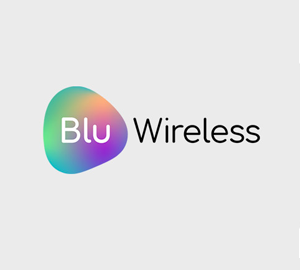5G has been proclaimed as the “next big thing” for long enough. Now is the time for action. Let’s stop waiting for disruption in the connectivity market and make it happen.
As consumer demand for connection continues to grow, our existing networks are increasingly challenged. This strain on technology is only expected to rise. We now have a challenge to create a technology that will not only support our current needs, but also sustainably push us into the future.
This is why Blu Wireless is pioneering innovation and collaboration to ensure the journey towards tomorrow’s networks are kick-started today.
In November 2019 we held a roundtable to serve exactly this purpose. This event on “The role of license exempt mmWave in tomorrow’s networks” represented the inaugural discussion of our larger Making Waves series. This series is focused on how industry leaders can work together to help shape the future of connectivity. Experts from all sectors involved in the connectivity race – from VCs to technology innovators – gathered to discuss this increasingly important topic.
One thing during this event became very clear; society’s connected future needs to be tackled from all sides. In order to complete the UK’s ambitious plans for widespread connectivity, everyone needs to work together.
Big players are no longer the only companies with roles to play. The UK is seeing more start-ups entering the market, greater disruption of old solutions, and an increase in government and industry collaboration. For example, the government funded AutoAir project had companies like McLaren, Blu Wireless, and Airspan join forces to test 5G technology.
While this development is promising, there is still work to be done. Operators are slowing with their innovation, and while there is disruption present, their strong market position still holds weight. Government involvement is positively increasing but local councils can’t afford to establish 5G independently. That is why Blu Wireless are exploring the need to create a community of industry experts who will connect the last mile together.
Not only people, but technologies need to collaborate. The only way universal connectivity is going to become a reality is by exploiting a heterogenous network. But what exactly does this mean? Rather than replacing what already exists, old and new technologies can be integrated to create a united network of connectivity.
Complementary technologies ensure wider and better coverage. Instead of choosing between the trade-offs in the licensed vs licensed exempt debate, each spectrum can be used in tandem. And the same is true for 4G and 5G. 5G won’t remove 4G, or its technology, entirely. 5G NR and mmWave can use the existing 4G network as a backbone and build bigger, better connections on top of the infrastructure already in place. Not only will this make 5G hardware deployment cheaper and easier, but providers can also share the infrastructure. This is how the UK can create a universal and cost-effective network, making the case for technology integration and collaboration. The key is then to find the right solution, and the right provider for the right application. Then we can achieve excellent coverage, everywhere.
We are excited to share our upcoming whitepaper on our Making Waves event discussing “The role of license exempt mmWave in tomorrow’s networks”. Based on this roundtable event, the paper will provide in-depth discussion on how the future’s universal networks will be achieved including critical analysis of political influences, market conditions, and the role of different technologies.
Keep an eye on our insights page for this highly anticipated piece.









